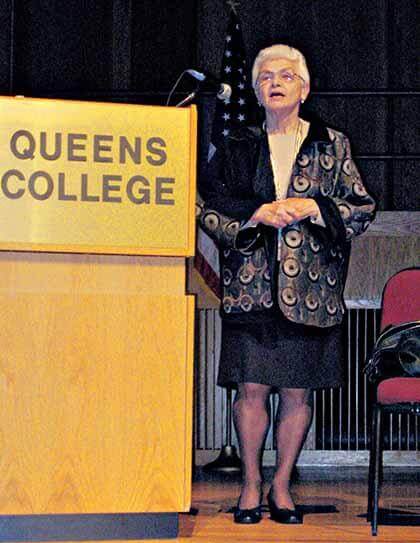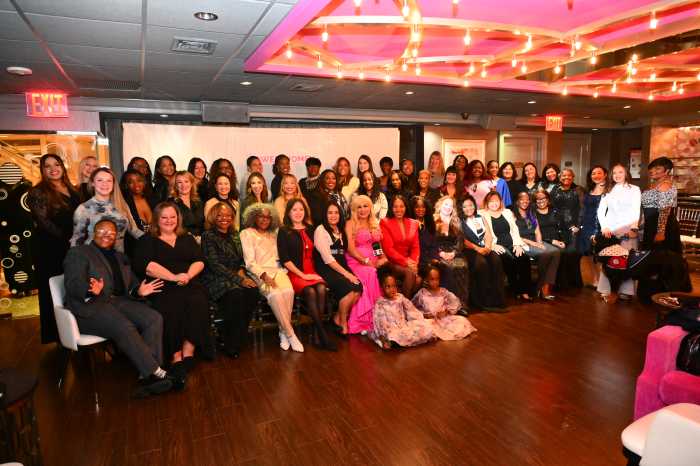By Ivan Pereira
Holocaust survivors, including a distinguished scholar, visited Queens College over the weekend to mark the start of the ethnic cleansing campaign against Jews in Nazi Germany and Austria and urge a new generation to stand up against hate.
The CUNY school’s Kristallnacht memorial Sunday featured a lecture from Dr. Nechama Tec, a Polish Jew who escaped death along with her family during World War II by posing as a Catholic.
The Nov. 9, 1938, attacks against Jews in Germany, also called the Night of the Broken Glass, have been recognized as the first major event of the Holocaust and the invited guests said that the incident must be commemorated as a way to show how far apathy can go.
“It’s right that we remember this event to remind us that evil exists everywhere,” Queens College President James Muyskens said.
For two days, Nazis raided Jewish businesses and homes in Germany, burned synagogues and sent thousands of German-Jewish families to concentration camps.
Although Tec did not experience Kristallnacht, the University of Connecticut professor, who has written several books about Holocaust survivors’ experiences, including “Defiance: The Bielski Partisans,” said the initial violence and anti-Semitism resonated throughout the war and affected her family.
During the late 1930s, Tec, her parents and her sister were already worried about the growing Nazi presence, so they devised a plan to prevent being arrested by soldiers.
Her father was able to secure fake documents and had all of their names changed to make it look like they were Polish Catholics. The family moved around from village to village in Poland to avoid being sent to a concentration camp, but the tenuous nature of their existence strengthened their bonds, according to Tec.
“I survived because they [my parents] devoted all of their energy to survival,” she said.
Tec recounted that by posing as a Catholic girl, she was exposed to anti-Semitism from other girls in the villages who spoke unfavorably about Jews without knowing she was one.
“All the time I would hear bad things about Jews … but I could not say one thing,” she said.
The professor said she carried on with the help of her father.
“He said if you hate, you will become a hateful person,” she said.
When the war ended, Tec and her family were part of the 450 members of her hometown of Lublin who survived the Holocaust, but she said she quickly repressed the memories. It wasn’t until 30 years later, after she earned a doctorate in sociology, that she decided to write about her experiences in an autobiography.
Tec said she got so much positive feedback from fellow survivors that she decided to talk to them and write about their experiences, too.
She was joined by nine other Holocaust survivors for a special candlelight ceremony following her lecture, where names of other survivors were read by young students.
Other guests, such as U.S. Rep. Anthony Weiner (D-Forest Hills) and state Assemblyman David Weprin (D-Little Neck), praised Tec for her courage. Both elected officials said people should learn from Kristallnacht and speak out against any hate rhetoric.
“Where there is hate … we should always remind ourselves of the day of Kristallnacht,” Weiner said.
Reach reporter Ivan Pereira by e-mail at ipereira@cnglocal.com or by phone at 718-260-4546.




































